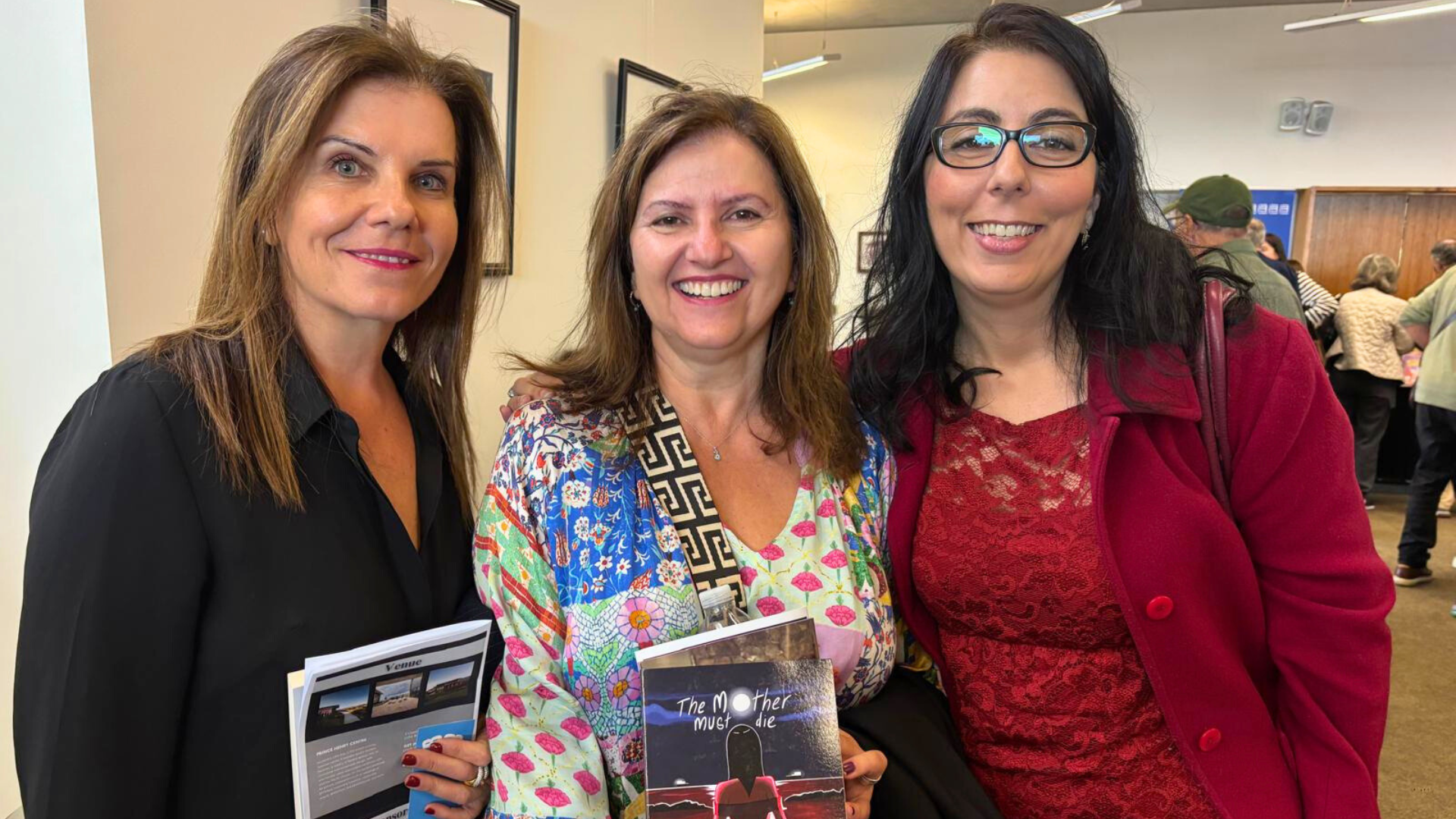“Keep going,” was the sentiment George Kouvaros left audiences with as he wrapped up the midday panel discussion at the 2025 Greek Australian Writers’ Festival held at Little Bay’s scenic Prince Henry Centre on Sunday, April 27.
“Keep on telling the stories of Greek migration, Greek diaspora and Greek culture – because this story is unfinished.”
As a third-generation Greek Australian, Kouvaros’ words powerfully struck me. Connecting to one’s diasporic lineage is not an ‘old story,’ but rather a continued story of answering undeniable callings to honour one’s Greek legacy.
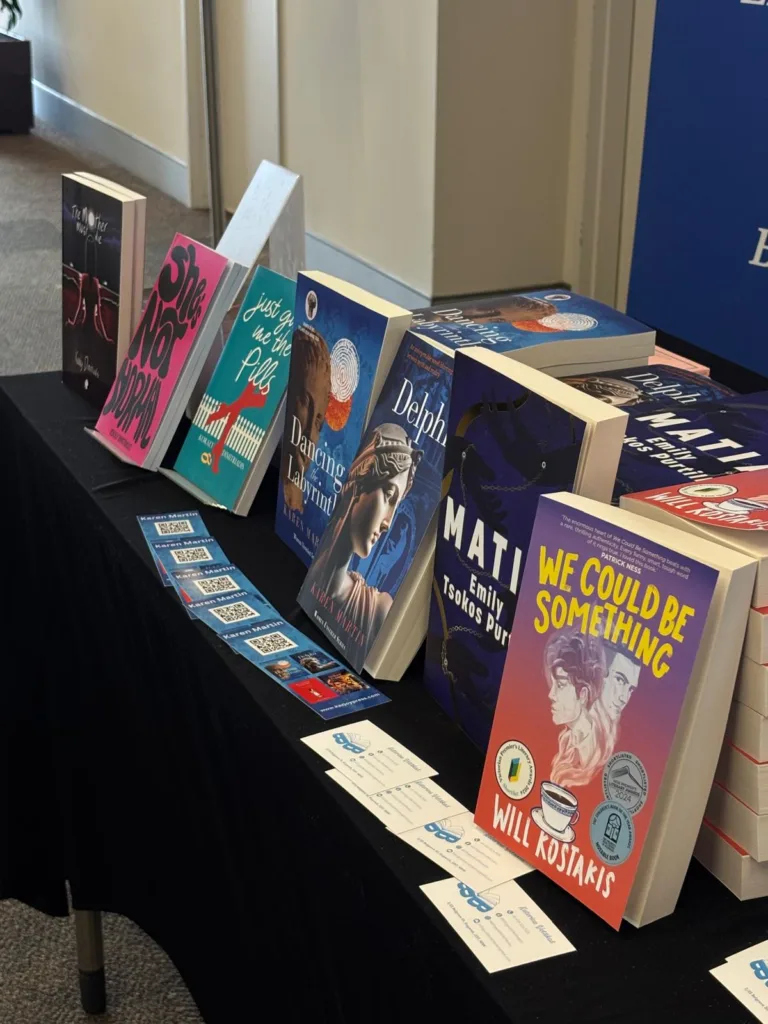
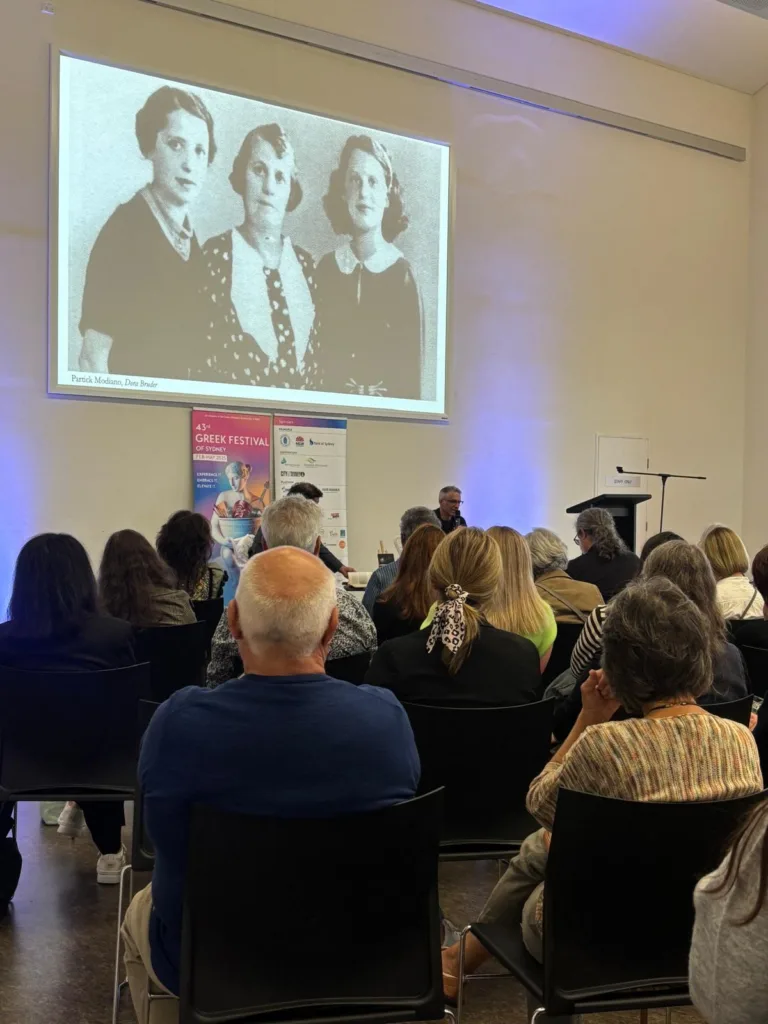
In conversation with Dr Andonis Piperoglou, Kouvaros’ book launch and panel discussion unearthed his elliptical prose, Patrimonies: Essays on Generational Thinking, by discussing how the text intertwined elements of memoir, cultural criticism and photography – ultimately prompting readers to think: what does a legacy ask of us and how do we give back to our patrimony?
Kouvaros said that to answer this question, we must first genuinely think about it.
“Don’t assume,” he said, adding that the Greek story is not fixed, rather it is something that is constantly transforming itself and we need to look at traditions amongst ourselves in our community.
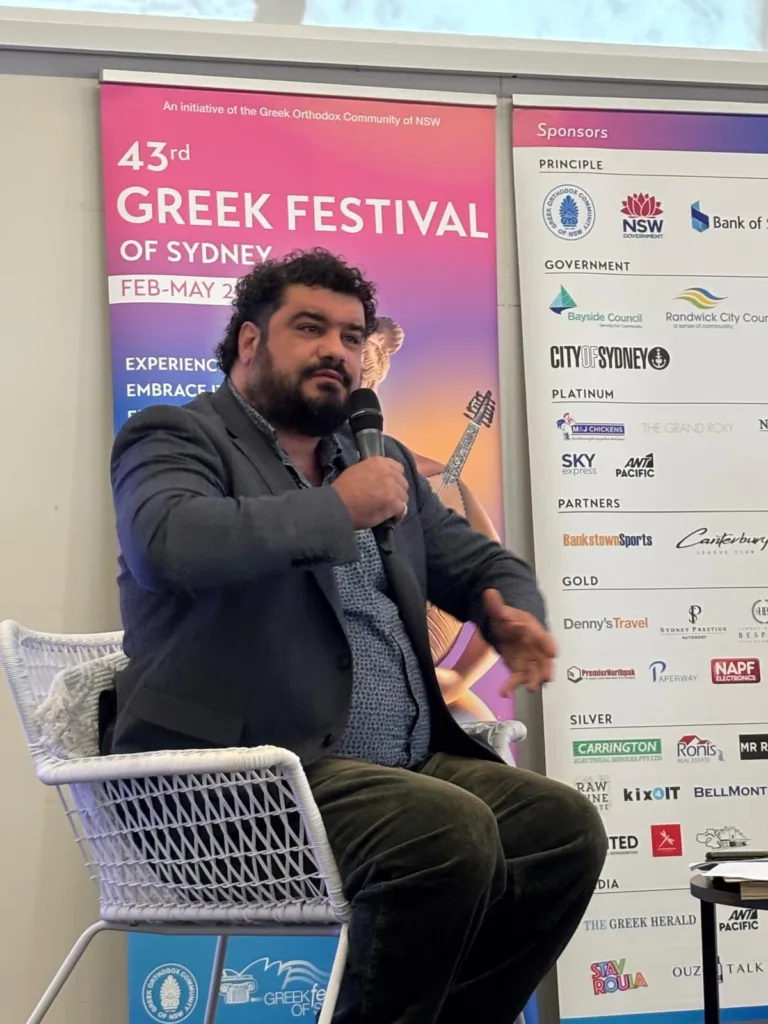
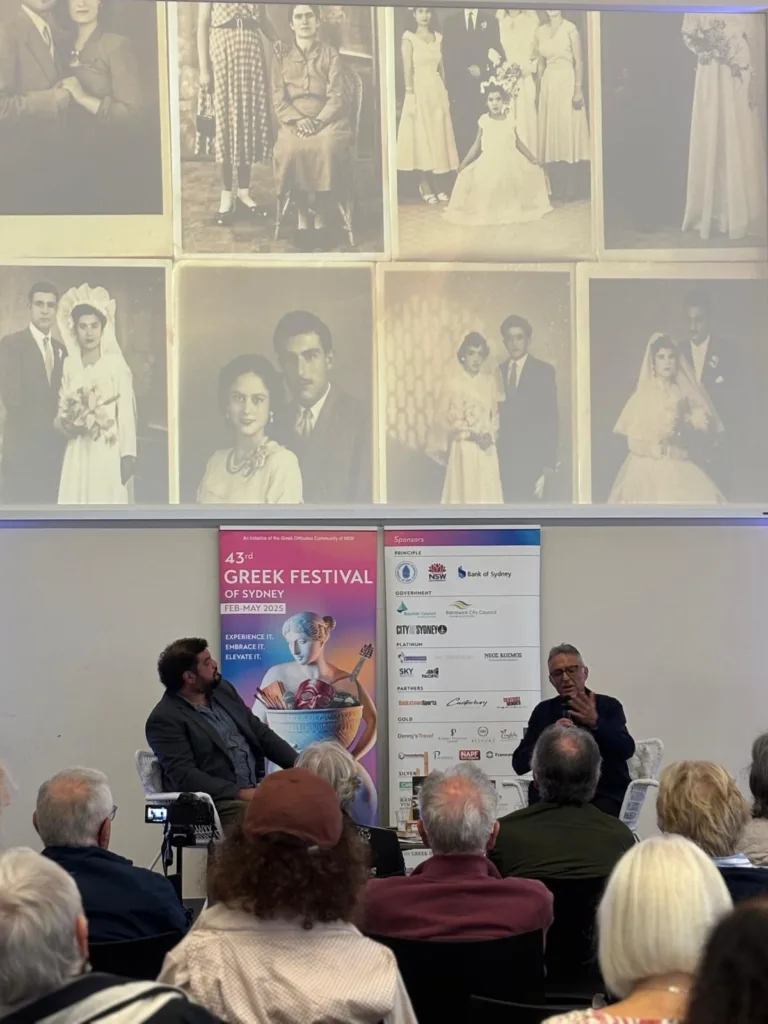
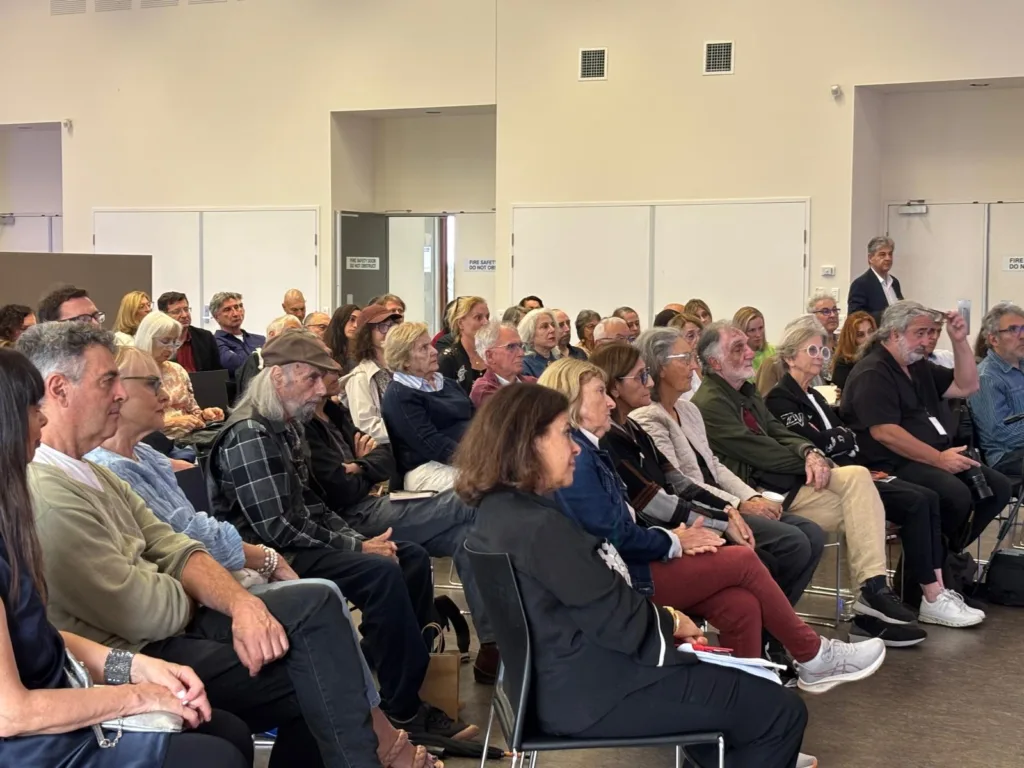
Kouvaros’ discussion was not the only hot topic at this year’s Greek Australian Writers’ Festival presented by the Greek Festival of Sydney, Francom and UTS Journalism and Writing, and directed by Dr Helen Vatsikopoulos with Deputy Director Dr Vassiliki Veros.
From 10am, audiences were immersed with best-selling poet Koraly Dimitriadis and her short story collection The Mother Must Die which explores violence, sexuality, identity, people defying traditions, and women breaking free.
In a parallel session, Karen Martin brought to life a historically rich and mythological story in Delphi – the sequel to Dancing the Labyrinth which won the Eyelands Book Award Self-Publishing category in 2024. Blending Greek myth, history and imagination through the virtue of a female protagonist, the novel illuminates misconceptions of our past.
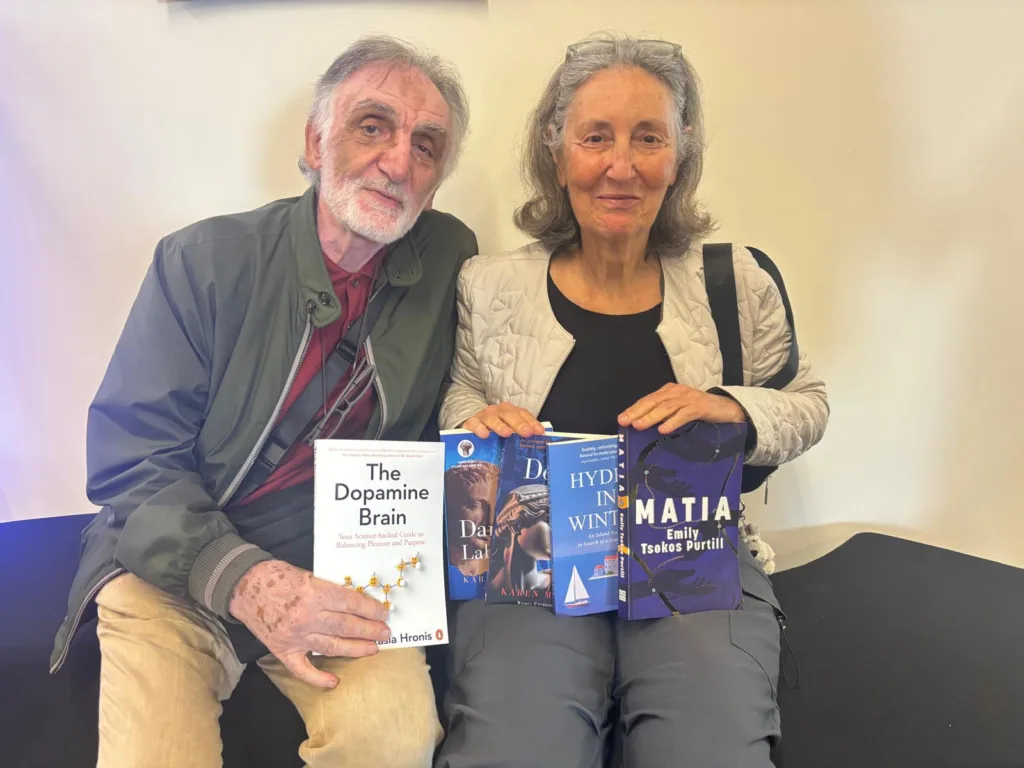
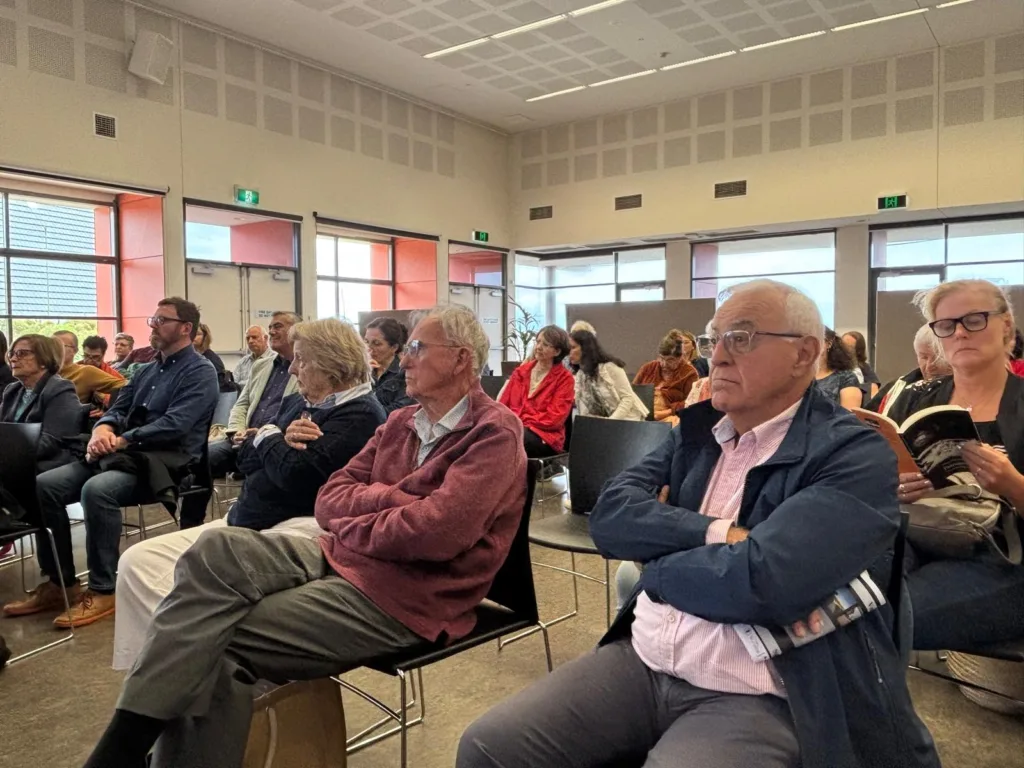
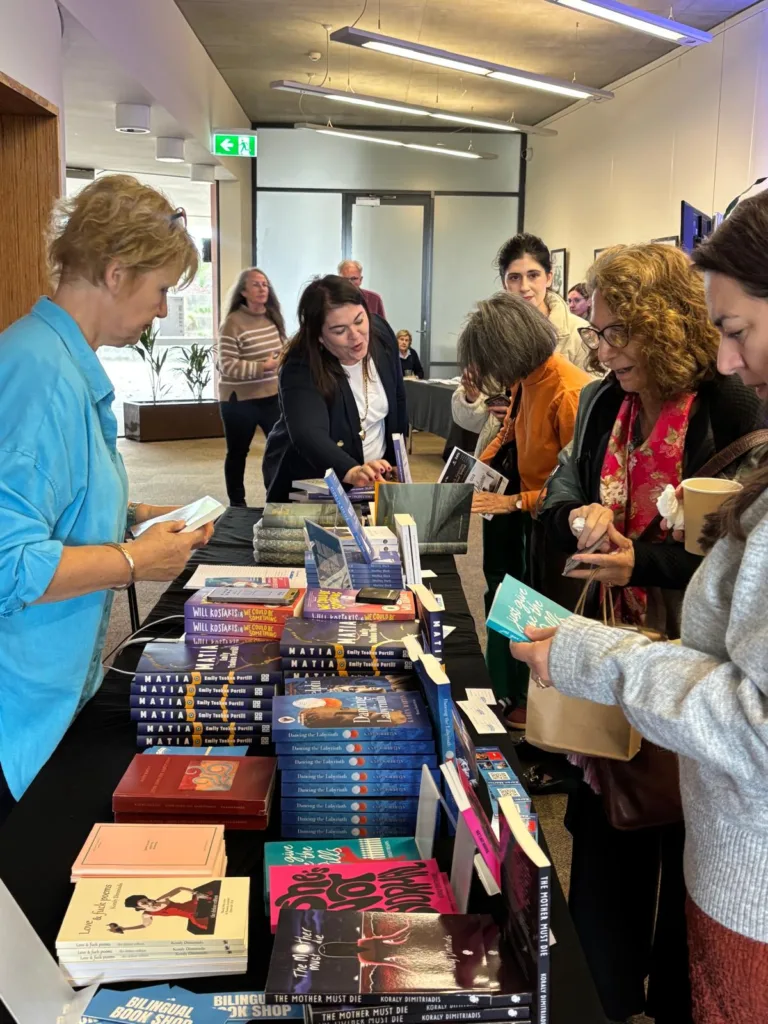
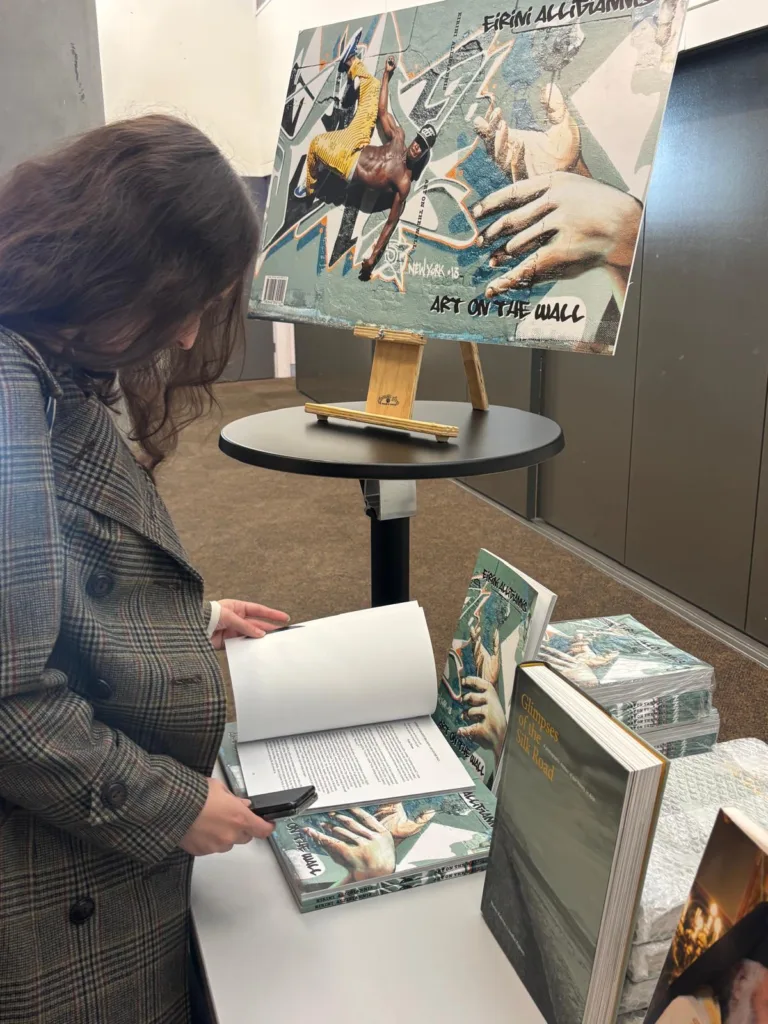
In the next sessions of the day, award-winning young writer and lawyer, Emily Tsokos Purtill, debuted her new fiction novel Matia that connects four Greek Australian women from the same family across continents and time.
This was a perfect pairing with Will Kostakis’ parallel session that focused on his novel, We Could be Something, which is similarly, about the power of family, love and identity, and which recently won the 2024 Prime Minister’s award for young adult literature.
After a light lunch, audience members were moved by the memoir of a deep friendship between two intellectuals: Nikos Papastergiadis and John Berger. John Berger and Me written by Nikos Papastergiadis, covers the experiences of peasant life and a reflection of migration.
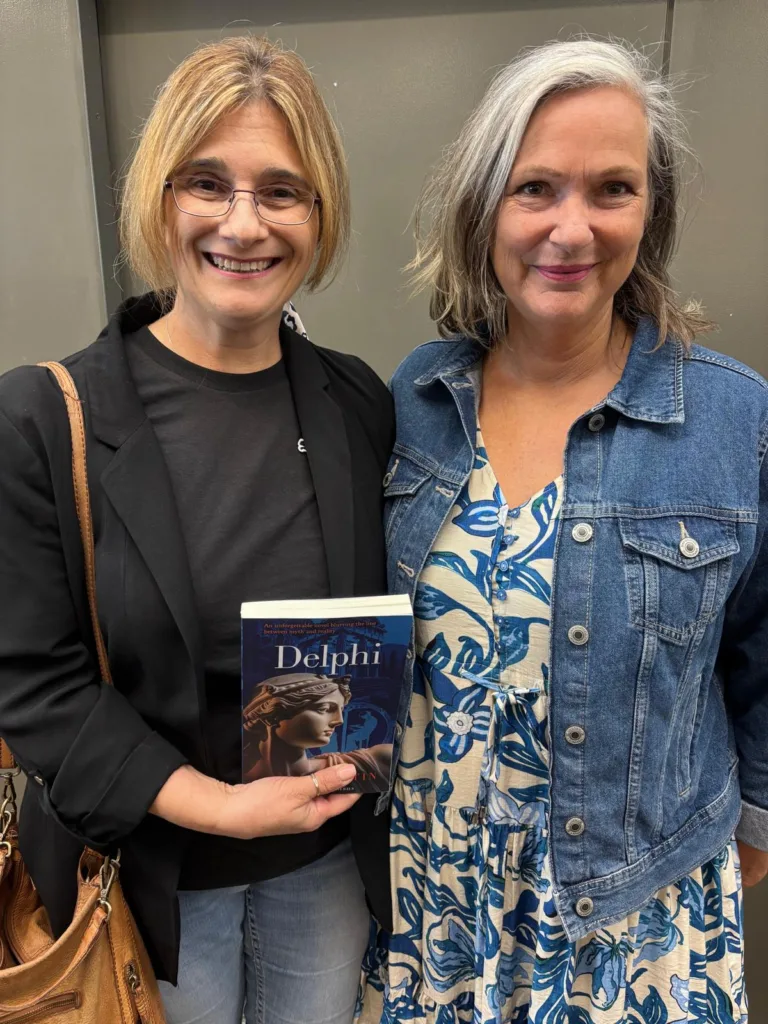
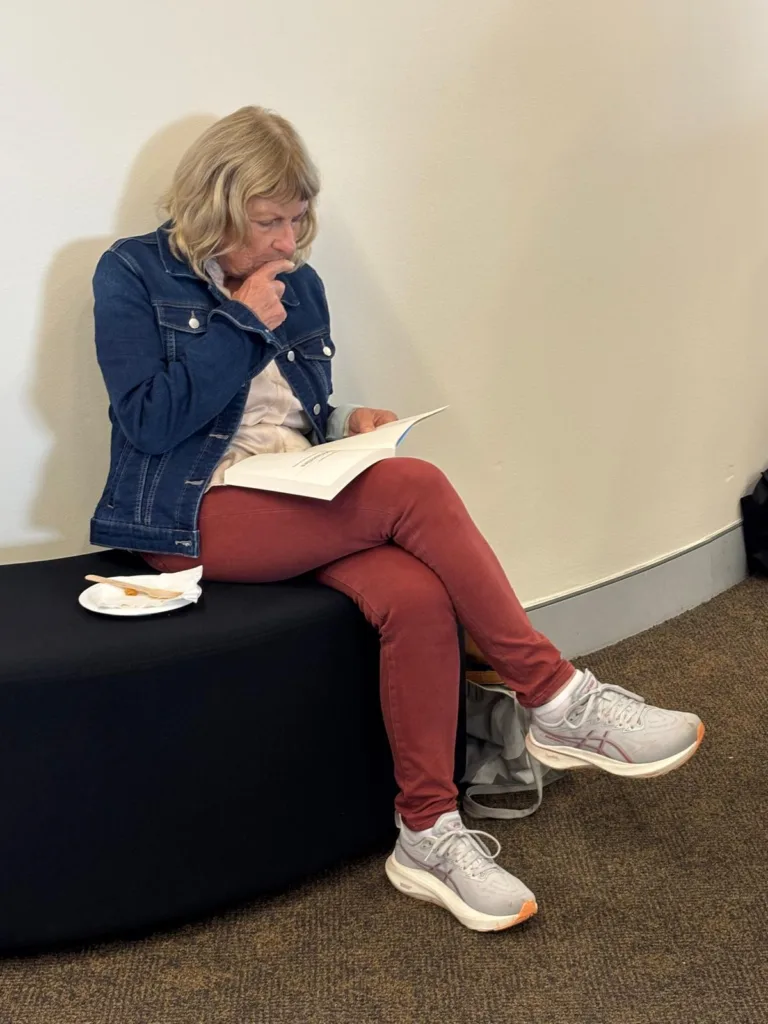
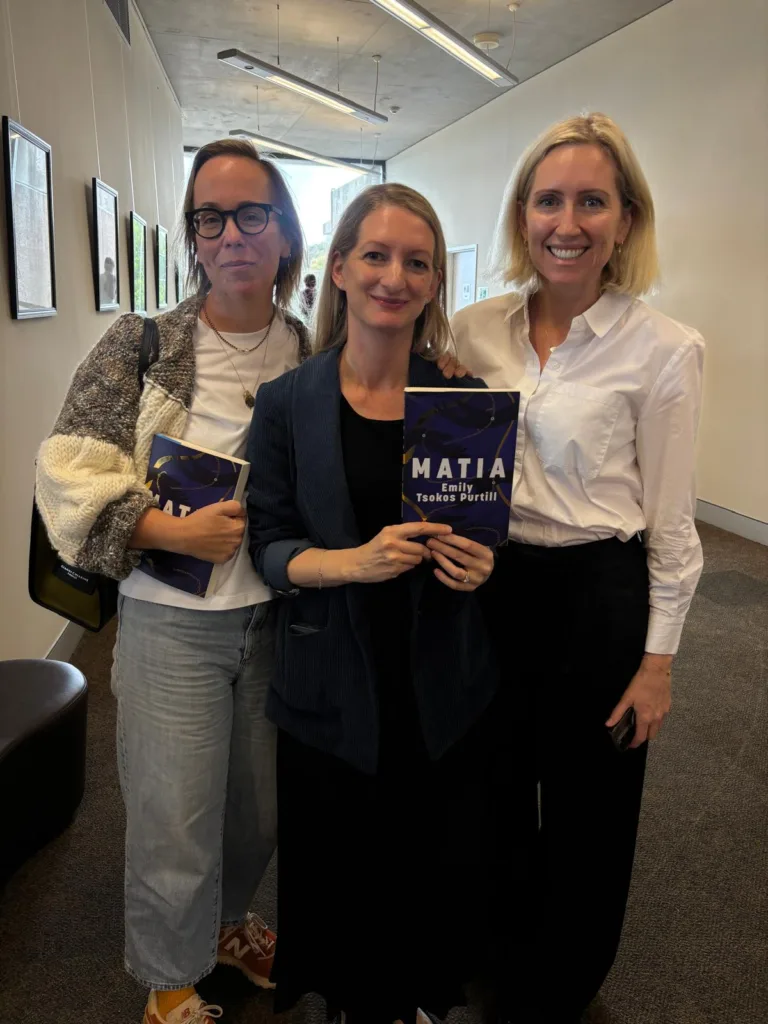
Next door, people were learning about the story of the search of one of Australia’s first Greek convicts transported to Australia. Shelly Dark’s memoir, Hydra In Winter, is colourful and anecdotal – seeking to discover her husband’s great-great-great grandfather Ghikas Voulgaris’ life story in a winter travel expedition to a Greek island.
The day was packed out, with many attendees extremely pleased and entertained with the array of fiction and non-fiction literature and photography.
Author Ms Dimitriadis said, “Today showcased how multifaceted and how many stories have not been told in the Greek community.”
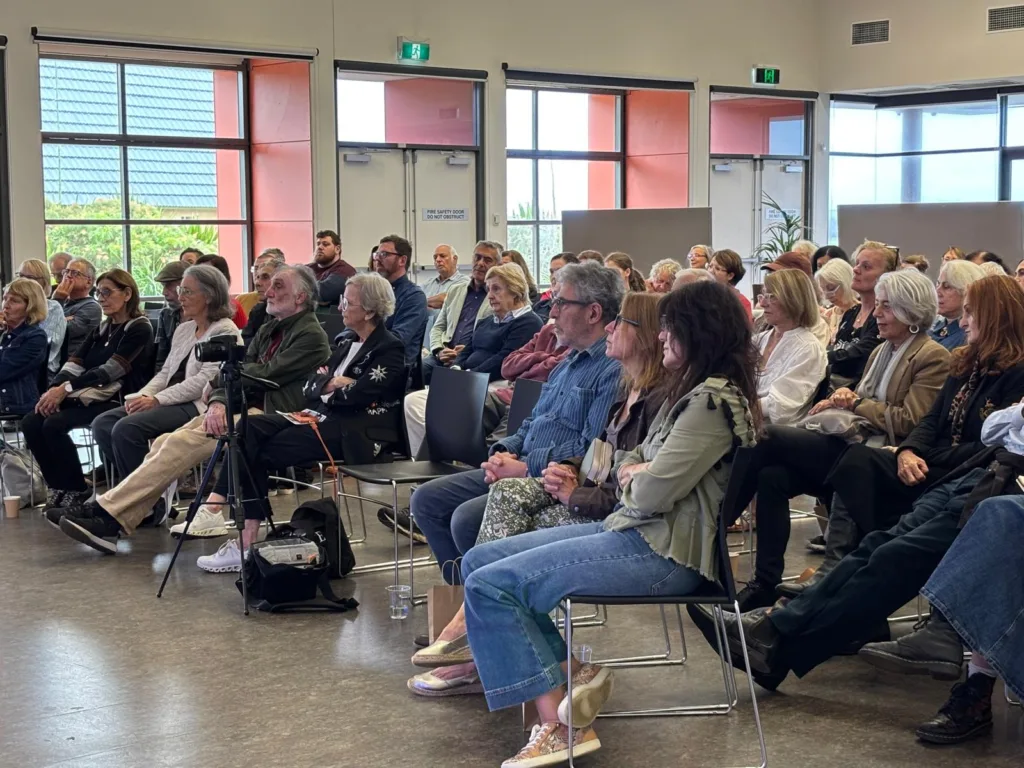
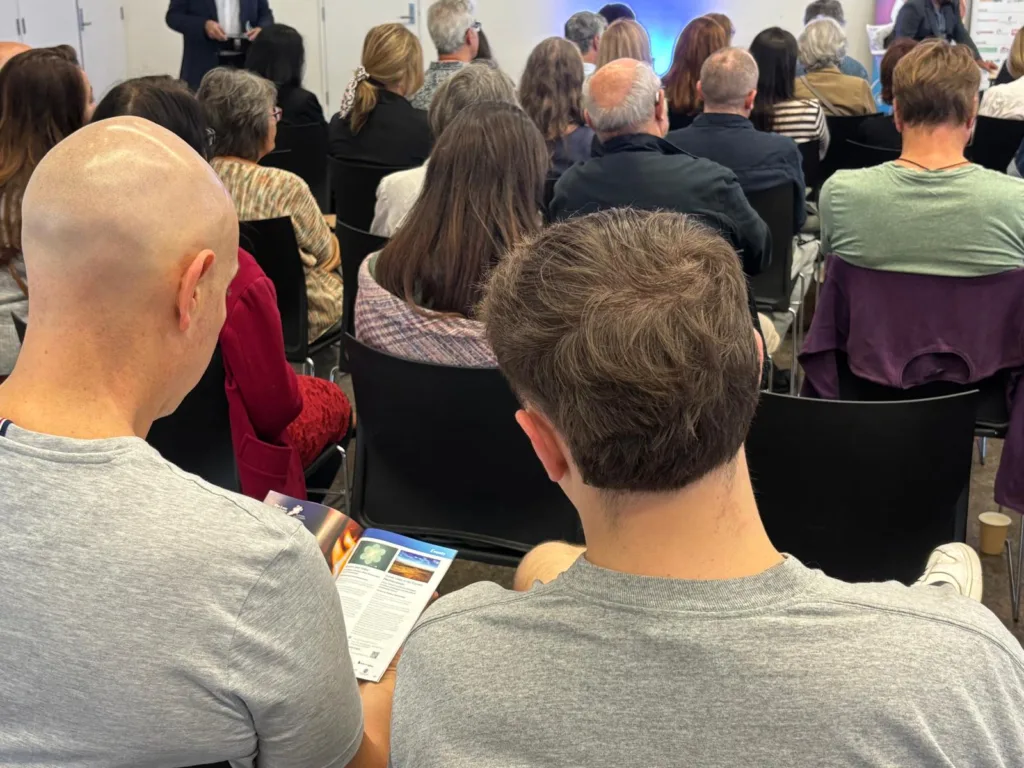
The final parallel session featured an extensive collection of Greek Australian and historical-themed photography in Effy Alexakis’ The Heart of Giving, Marios Kalyvas and Aretha Zygouri’s Glimpses of the Silk Road, and Eirini Alligiannis Art on the Wall. Also featured was Anastasia Hronis’ The Dopamine Brain, a non-fiction text aiming to scientifically answer why we struggle to balance pleasure and purpose.
But it didn’t end there! The festival closed by inviting audience members to discuss their favourite Greek stories in an open discussion.
An intellectually driving day where Greek writers from across Australia came together, sharing their work and purposely engaging with the community on a cultural level.
